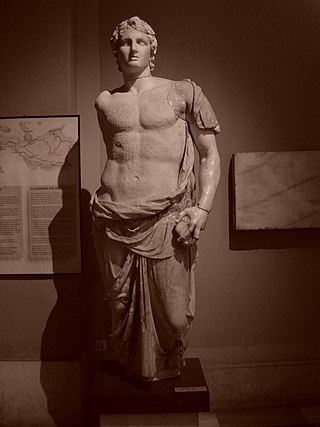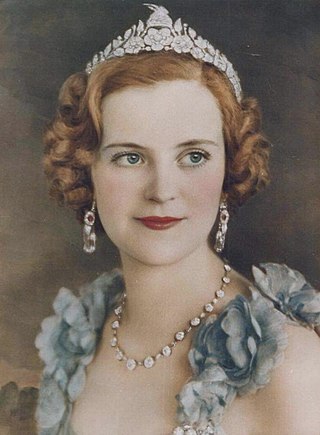Leka may refer to:
Leka may refer to:

Alexander is a male name of Greek origin. The most prominent bearer of the name is Alexander the Great, the king of the Ancient Greek kingdom of Macedonia who created one of the largest empires in ancient history.
Zog or ZOG may refer to:

Zog I was the leader of Albania from 1922 to 1939. At age 27, he first served as Albania's youngest ever Prime Minister (1922–1924), then as president (1925–1928), and finally as king (1928–1939).

The House of Zogu, or Zogolli during Ottoman times and until 1922, is an Albanian dynastic family whose roots date back to the early 20th century. The family provided the first president and the short-lived modern Albanian Kingdom with its only monarch, Zog I of Albania (1928–1939).

Geraldine was Queen of the Albanians from her marriage to King Zog I on 27 April 1938 until King Zog was deposed on 7 April of the following year.

Lekë III Dukagjini (1410–1481), mostly known as Lekë Dukagjini, was a 15th-century member of the Albanian nobility, from the Dukagjini family. A contemporary of Skanderbeg, Dukagjini is known for the Kanuni i Lekë Dukagjinit, a code of law instituted among the tribes of northern Albania. Dukagjini is believed to have been born in Lipjan, Kosovo.

While the medieval Kingdom of Albania was a monarchy, it did not encompass the entirety of modern Albania. Although discontent among Albanian nobles emerged by 1282 due to the Angevin king's unfulfilled promises, the kingdom did not end at that time. Instead, Albanian nobles sought the support of the Roman Emperor in Constantinople, but Angevin rule continued in the region for several more decades. During the Middle Ages there have been many different Albanian nobles who called themselves ruler of Albania, including Dhimitër Progoni, Andrea II Muzaka, Karl Thopia, and Skanderbeg.

Leka, Crown Prince of Albania was the only son of King Zog I and Queen Geraldine of Albania. He was called Crown Prince Skander at birth. After his father's death in 1961, Leka was the pretender to the Albanian throne, and his supporters referred to him as King Leka I.

Leka, Prince of Albania is the current head of the House of Zogu, the former royal family of Albania.
King Leka may refer to:
Leca or LECA may refer to:

The Royal Villa of Durrës, commonly known as Royal Villa of Durrës, is a historical building in the city of Durrës, Albania. It served as the summer residence of King Zog.
The Zaharia family was an Albanian noble family, most prominent during the 14th and 15th century.

The Presidential Palace, formerly the Royal Palace and popularly known as the Palace of Brigades, is the official residence of the president of Albania. The palace was commissioned by King Zog I of the Albanians to serve as his main official residence.

Nicholas II Dukagjini was an Albanian nobleman of the Dukagjini family in the 15th century. He was the son of Pal Dukagjini, one of the founding members of the League of Lezhë. Nicholas Dukagjini fled to Italy after the second Siege of Shkodra in 1479, but is well known for the return to his homeland two years later, together with Skanderbeg’s son Gjon Kastrioti and other noblemen to lead the armed movement against the Ottomans.
Andrea II Thopia was a 15th century Albanian nobleman whose domains included the territory of Scuria. He was a member of the Thopia family and one of the founders of the League of Lezhë.

The Mausoleum of the Albanian Royal Family is a building in Tirana, capital of Albania, which holds the remains of King Zog and other members of his family.
Leka is an Albanian male name and surname. In the Balkans, it has spread in the forms Lecca (Romanian), Lekkas (Greek), Lekić (Serbo-Croatian).
Leka, Prince of Albania may refer to:
The Regalia of Albania is a royal regalia that existed during the Albanian monarchy. The regalia worn by Albanian nobles, spanning various aristocratic families, included royal symbols, artifacts, and ceremonial aspects. These regal emblems were emblematic of the monarchy's power and heritage, representing a broader spectrum of Albanian noble history. The historical and cultural value attached to these symbols transcends individual families, signifying the collective richness of Albania's noble traditions throughout different periods.